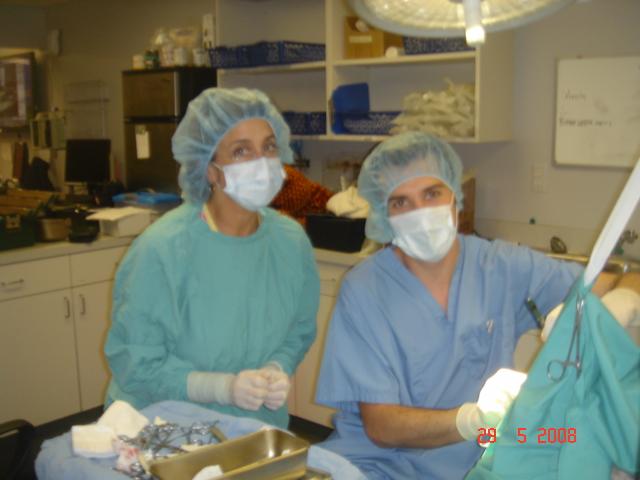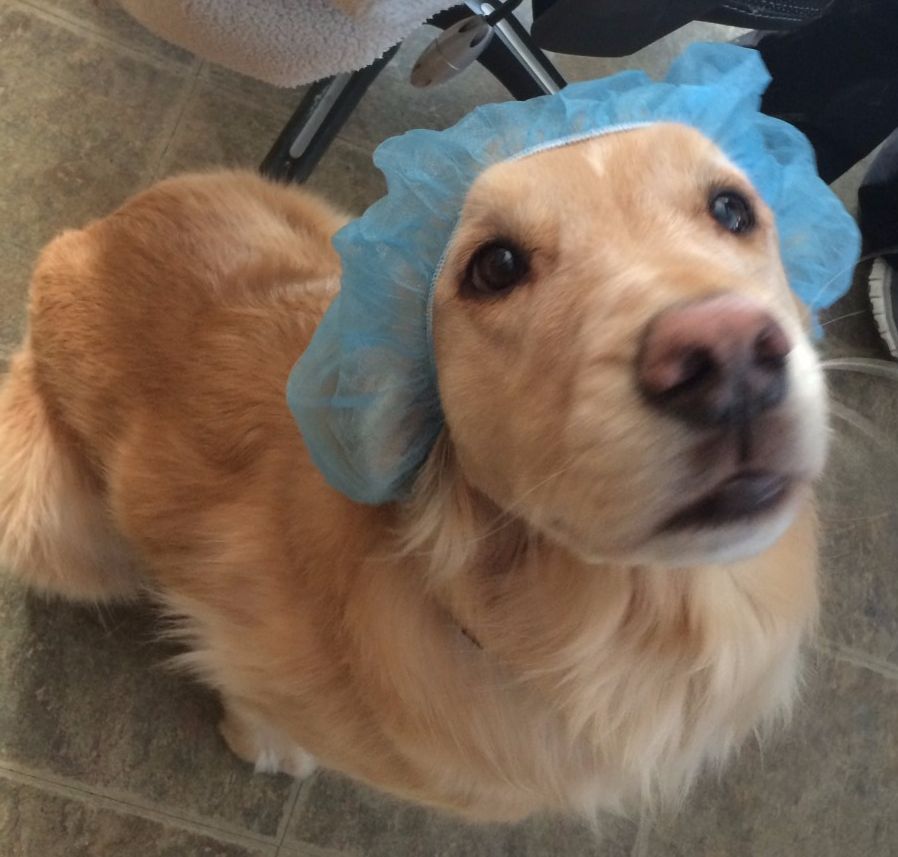Veterinary House Calls
(248)254-1724
www.vethousecallsmi.com
|
Surgical Information
What You Need to Know Before Your Pet's Upcoming Surgery Many people have questions about various aspects of their pet's surgery. We hope this information will help with your concerns and decisions that need to be made before your pet's upcoming surgery.
Is the anesthetic safe? Today's modern anesthetic monitors have made surgery much safer than in the past. Here at Veterinary House Calls, we do a thorough physical exam on your pet before administering anesthetics to ensure that a fever or other illness won't be a problem. We also adjust the amount and type of anesthetic used depending on the health of your pet. Please refer to our handouts page under the Articles and Information section for more information about your pets surgery. It is important that surgery be done on an empty stomach to reduce the risk of vomiting during and after anesthesia. You will need to withhold food from your pet starting around 10 pm the night prior to surgery. Water can be left down for tyour pet until the morning of surgery. Pre-surgery Bloodwork Preanesthetic blood testing is important in reducing the risk of anesthesia. Every pet needs blood testing before surgery to ensure that the liver and kidneys can handle the anesthetic. Even apparently healthy animals can have serious organ system problems that can only be detected through blood testing. If there is a problem, it can cause anesthetic or surgical complications. With blood testing, we can be aware of these issues before surgery to ensure your pet has the safest procedure possible for their condition. Animals that have minor dysfunction may receive IV fluids during surgery to better handle the anesthetic. If serious problems are detected, surgery may be postponed until the problem is corrected. For geriatric or ill pets, additional blood tests, electrocardiograms, or x-rays may be required before surgery as well.
Will my pet have stitches? For many surgeries, absorbable sutures are used underneath the skin. These will dissolve on their own, and do not need to be removed later-on. Some surgeries, especially tumor removals, do require skin stitches. With either type of suture, you will need to keep an eye on the incision for swelling or discharge. Some dogs and cats may lick excessively or chew at the incision, it is important to watch for this and stop them immediately. If it becomes problematic, you can buy a cone from our office or the pet store so your pet is unable to chew at the incision. A t-shirt or baby onesie is also an option so your pet cannot get to the incision. If there are skin sutures, these will usually be removed 10 to 14 days after surgery. You will also need to limit your pet's activity level for about two weeks. No baths are allowed for the first 10 days after surgery.
Will my pet be in pain? Anything that causes pain in people can be expected to cause pain in animals. Pets may not show the same symptoms of pain as people do; they usually don't whine or cry, but you can be sure they feel it. Pain medications dispensed will depend on the type of surgery performed. For dogs, we may recommend an oral anti-inflammatory for several days after surgery to lessen the risk of discomfort and swelling. We use newer medications, which are less likely to cause stomach upset and can be given even the morning of surgery. The cost of the medication ranges depending on the size of your dog. Cats do not tolerate standard pain medications such as aspirin, ibuprofen, or Tylenol, so we are limited in what we can give them. Recent advances in pain medications have allowed for better pain control in cats than ever before. We administer a pain injection 10 minutes prior to surgery. After surgery, pain medication is given on a case by case basis. Any animal that appears painful will receive additional pain medication. Injectable pain medications may also be used after surgery on both dogs and cats. Providing any type of pain relief is a humane and caring thing to do for your pet. If you notice your pet is in discomfort after surgery and did not receive pain medication, please call our office to consult with Dr. Switch.
What other decisions do I need to make? While your pet is under anesthesia, it is the ideal time to perform other minor procedures, such as dentistry, nail trim, or implanting an identification microchip. If you would like any of these extra services, please call ahead of time. The Day of Surgery We do surgery out of Novi Veterinary Clinic, on the corner of Grand River Ave. and Novi Rd. you can drop your pet off at Novi Vet Clinic the morning of surgery, at our office, or make arrangements for our staff to transport your animal. Please note that you will be charged a transportation fee if you have our clinic pick up your pet. We will call you the night before your scheduled surgery appointment to confirm the time, transportation arrangements and to answer any questions you might have. In the meantime, please don't hesitate to call us with any questions about your pet's health or surgery procedures. A price estimate will be reviewed and sent to you at least 24 hours before your scheduled surgery appointment. |

